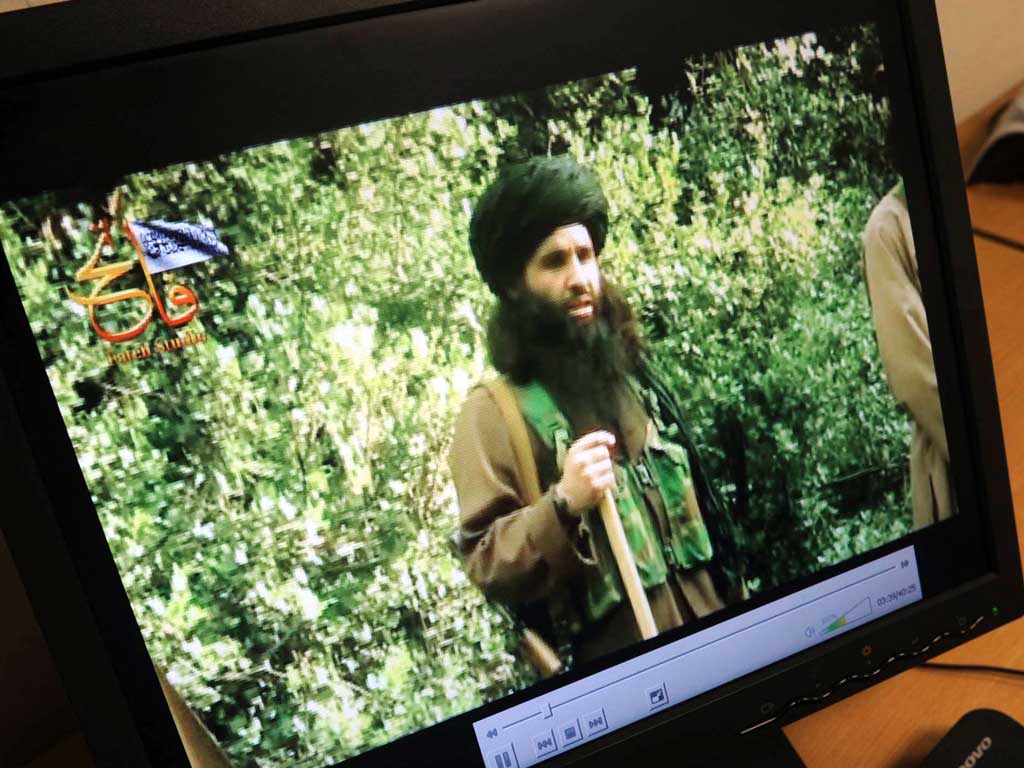Mullah Fazlullah: The hardliner elected as Pakistan Taliban’s new leader
They call him ‘Mullah Radio’ and his message is clear: there will be no more talk with the regime

The Pakistan Taliban has rejected the prospect of peace talks after electing as its new leader the notorious hardline militant who ordered the attack which almost killed schoolgirl activist Malala Yousafzai.
Six days after their previous leader was killed in a CIA drone strike in North Waziristan, the Pakistan Taliban has announced that Mullah Fazlullah, also known as “Mullah Radio” for his fiery radio sermons, had been selected as the new chief.
Reports said that the Taliban leadership council selected Fazlullah at an undisclosed location in the North Waziristan tribal area after days of deliberation. Fighters fired automatic weapons into the air to celebrate the decision.
“Fazlullah is the new Pakistan Taliban chief,” a spokesman told Reuters. “The decision was taken at a shura meeting today [Thursday]. There will be no more talks as Mullah Fazlullah is already against negotiations with the Pakistan government.”
The new commander led the Taliban’s iron-fisted domination of Pakistan’s Swat Valley between 2007-2009, when girls’ schools were closed and destroyed and suspected informants flogged and beheaded in the street.
The former tourist haven was eventually recaptured following failed negotiations and then a bloody operation by the army. Fazlullah was forced across the border into eastern Afghanistan where he has set up base, from which he has conducted repeated attacks. Recent reports said his fighters were active in the Afghan provinces of Nuristan and Kunar.
A former chair-lift operator, Fazlullah became known as Radio Mullah after he started delivering illegal, fiery radio sermons, broadcast via FM radio in the Swat Valley. Sometimes he would announce his fatwas and orders for executions over the air waves.
He is held responsible for attacks on both soft and high-profile targets, including the killing of Maj Gen Sanaullah Khan Niazi in September, struck by a roadside bomb close to the Afghan border.
Iqbal Khattak, a journalist and analyst based in the city of Peshawar, said it was unclear whether Fazlullah would try to run the Pakistan Taliban from inside Afghanistan or whether he would try and return across the border.
Among Fazlullah’s darkest deeds was his order for the assassination attempt on the schoolgirl activist, Malala Yousafzai, who had written an anonymous blog on the BBC website about life in the valley under Taliban rule. Later, she became an outspoken campaigner for girls’ education.
“We had no intentions to kill her but were forced when she would not stop speaking against us,” a Taliban spokesman said last year after two men were recruited to find and kill her.
The election of Fazlullah follows the killing of the Pakistan Taliban’s previous leader, Hakimullah Mehsud, who was hit in a US drone strike on his compound in the tribal areas last Friday.
There had been various reports about who might replace Mehsud and, while Fazlullah was among those named, he was not necessarily the favourite. As it is, Fazlullah, aged in his late 30s, is the first leader of the Pakistani Taliban not to come from the Mehsud tribe, based in the South Waziristan tribal area.
The killing of Mehsud took place on the eve of a meeting between Muslim clerics representing the Pakistani prime minister, Nawaz Sharif, and members of the Taliban. Government ministers denounced the strike, though Mr Sharif, who had been elected in May having campaigned for talks with the militants, has been noticeably silent.
Observers said Fazlullah has a reputation for ruthlessness. His father-in-law, another cleric and militant, Sufi Muhammad, is currently being held in Pakistan on terrorism charges.
“If you go by his ideological positions when he was holding the fort in the Swat valley, he was quite hardline,” Mr Khattak told The Independent. “More so than his father-in-law.”
Talat Masood, an analyst and former Pakistani general, said the appointment of Fazlullah was intended to send a message.
“I think the message the Taliban is sending is very clear. They have elected a leader who is supposed to be very aggressive,” said Mr Masood. “We have had a very tough experience with him. They are sending a message that there is no question of a dialogue process. They are going to launch attacks and Pakistan will have to respond.”
Subscribe to Independent Premium to bookmark this article
Want to bookmark your favourite articles and stories to read or reference later? Start your Independent Premium subscription today.

Join our commenting forum
Join thought-provoking conversations, follow other Independent readers and see their replies